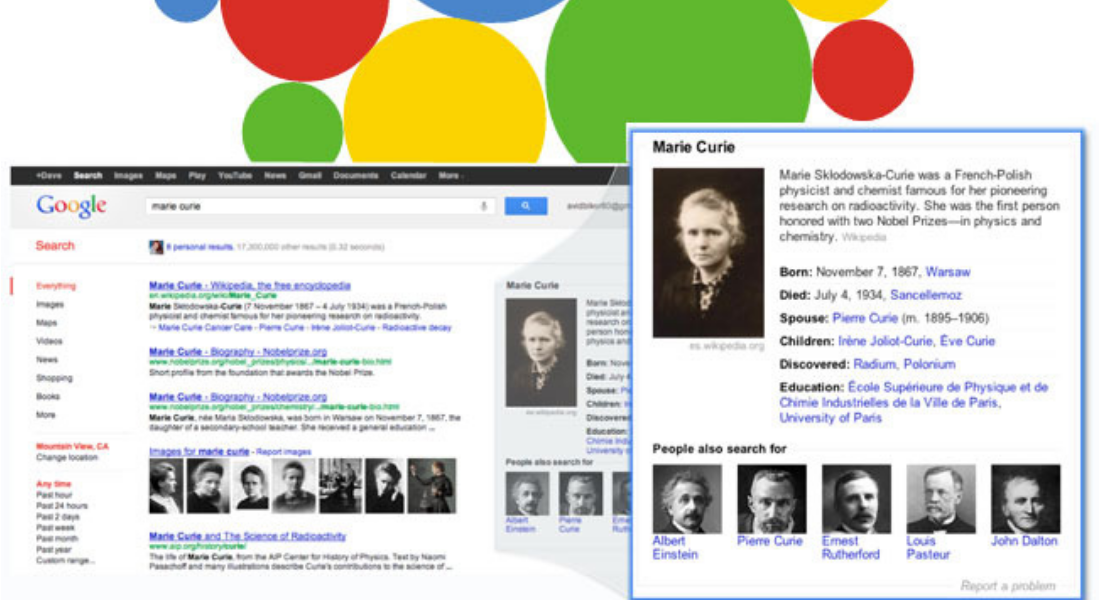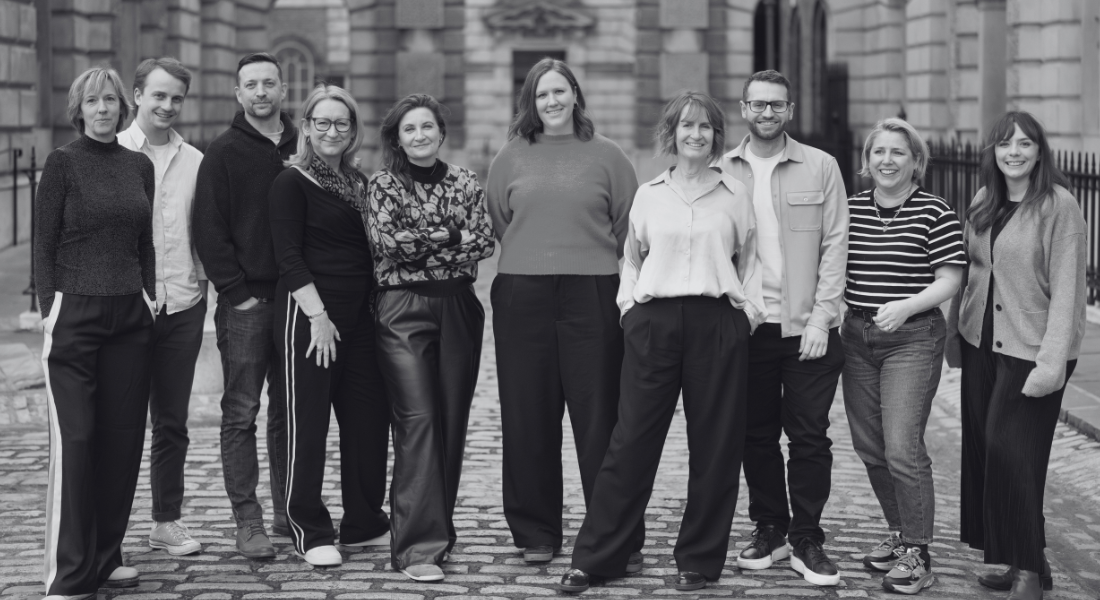Three days into my Fourth Day PR experience and I was lucky enough to attend the Google workshop run by Better Bankside and Affordable Intelligence Marketing (AIM). The workshop took us through many elements of Google including SEO, Google+ and the newest member to the Google family, the Knowledge Graph. I found the Knowledge Graph a really interesting concept that Google is claiming to be ‘the future of search’. The idea behind it is that users can broaden their knowledge through a single, specific search.
Google is no longer just looking at the search terms people are using as a string of characters typed into a box, but building a database that connects these words to actual things. So the new tool is made up of a huge collection of the people, places and objects in the world and how they’re connected to one another.
The tool is designed as a panel that features on the right of your Google search results. If you were to search ‘Picasso’ for example, the panel shows you a snapshot of his life including birth and death, family history, images, full name, his works and the periods of art he contributed to. As you scroll down, more information is revealed about other painters linked to Picasso through various art movements such as surrealism and cubism, so in just one click you can widen your search about Picasso to cubism or Salvador Dali. With this intelligent search technology, the user can get the best possible answers and a more complete picture of what they are curious about.
At a glance, this looks great! Google is providing its users with more information and attempting to engage us. I wonder, however: If Google is providing us with all the information we need outside of our search terms, then surely this is going to have a negative effect on website traffic? This is because when the user clicks on information from the Knowledge Graph, Google doesn’t take them to the information source, i.e. a website, but to another Google search result page, therefore reducing the user’s need to visit other websites.
Some believe that the Knowledge Graph has already had an impact on website hits. The Knowledge Graph uses a similar structure to Wikipedia, and since the launch of the Graph in 2012, the UK Wikipedia site alone has seen its page views fall by 21% over 12 months to December 2013 (Wikipedia’s own stats). It is difficult to know if the Knowledge Graph is responsible for Wikipedia’s decline in users, but regardless of this, it does highlight some issues such as limiting how information is shared and from whom, and the way some people are monopolizing the internet.
Yes, Wikipedia has its pitfalls; over the 13 years that the site has been around it has seen a string of incorrect information being posted. However, looking at the bigger picture, Wikipedia actually represents what web 2.0 is all about: public participation and the sharing of information. It describes itself as a free encyclopaedia which anyone can edit. I think that, despite the claims that the Knowledge Graph is a tool to share and widen information about a search, really, it is just Google sourcing the information for us in a diluted fashion. So Google is claiming that its search is becoming more conversational, but is it? I’m not convinced because the public are not providing the information, Google staff members are!
If the decline in Wikipedia users is down to the Knowledge Graph, this highlights another issue; Google’s monopolisation of the internet. 88.71% of all UK searches take place on Google, a figure that’s great for maximizing SEO as highlighted during the AIM workshop. But, to me it shows that if an increased number of Google users are using the Knowledge Graph for their information, they are not actually stepping away from the search results page. The result is that Google is monopolising the internet.
This might sound a little extreme but I think it is important to consider. What could the effects of this be beyond the page view declines for Wikipedia? Could this have a bigger impact on the web as a whole?
NB: Image from Rocketfish
Share this:





